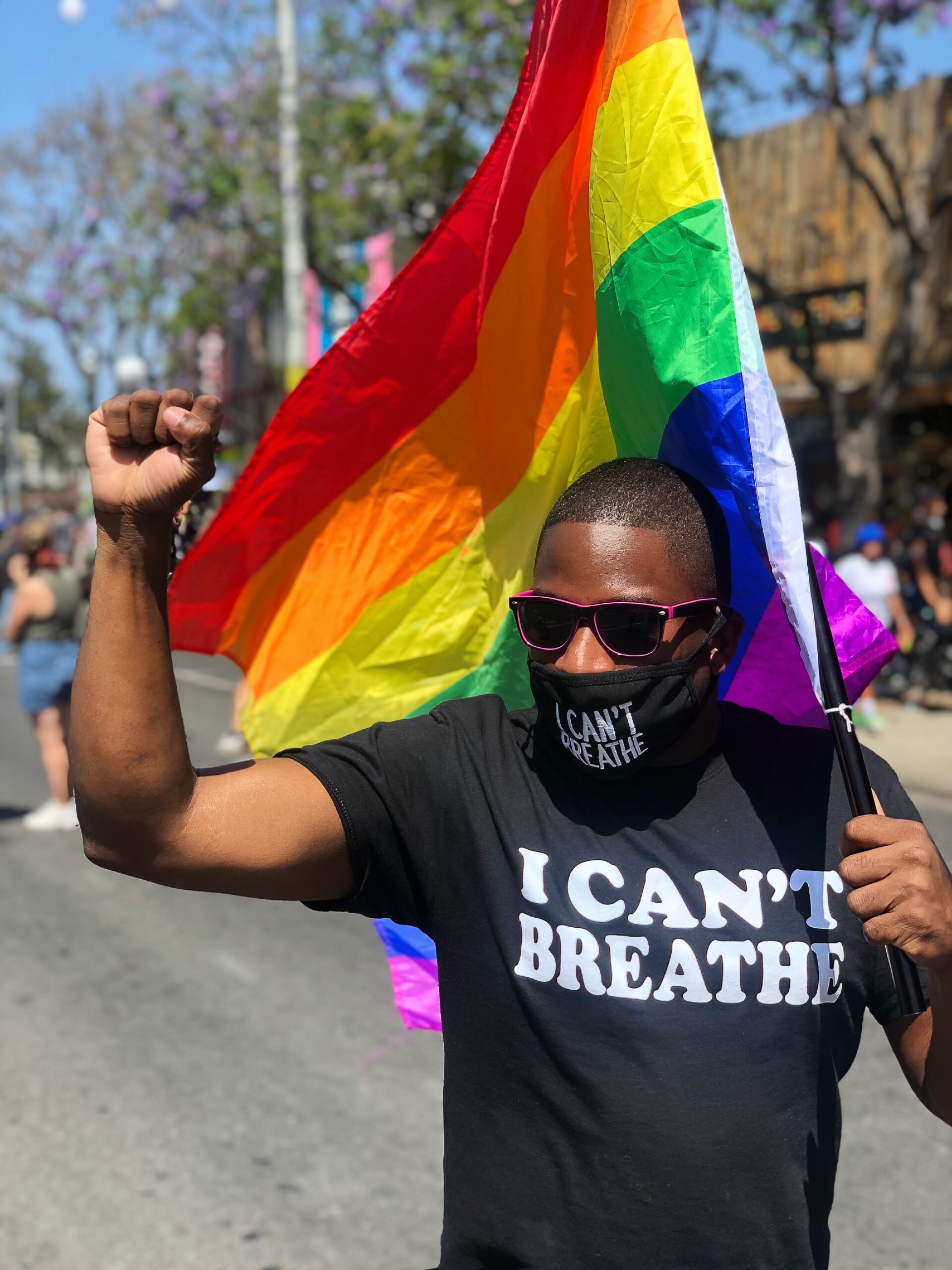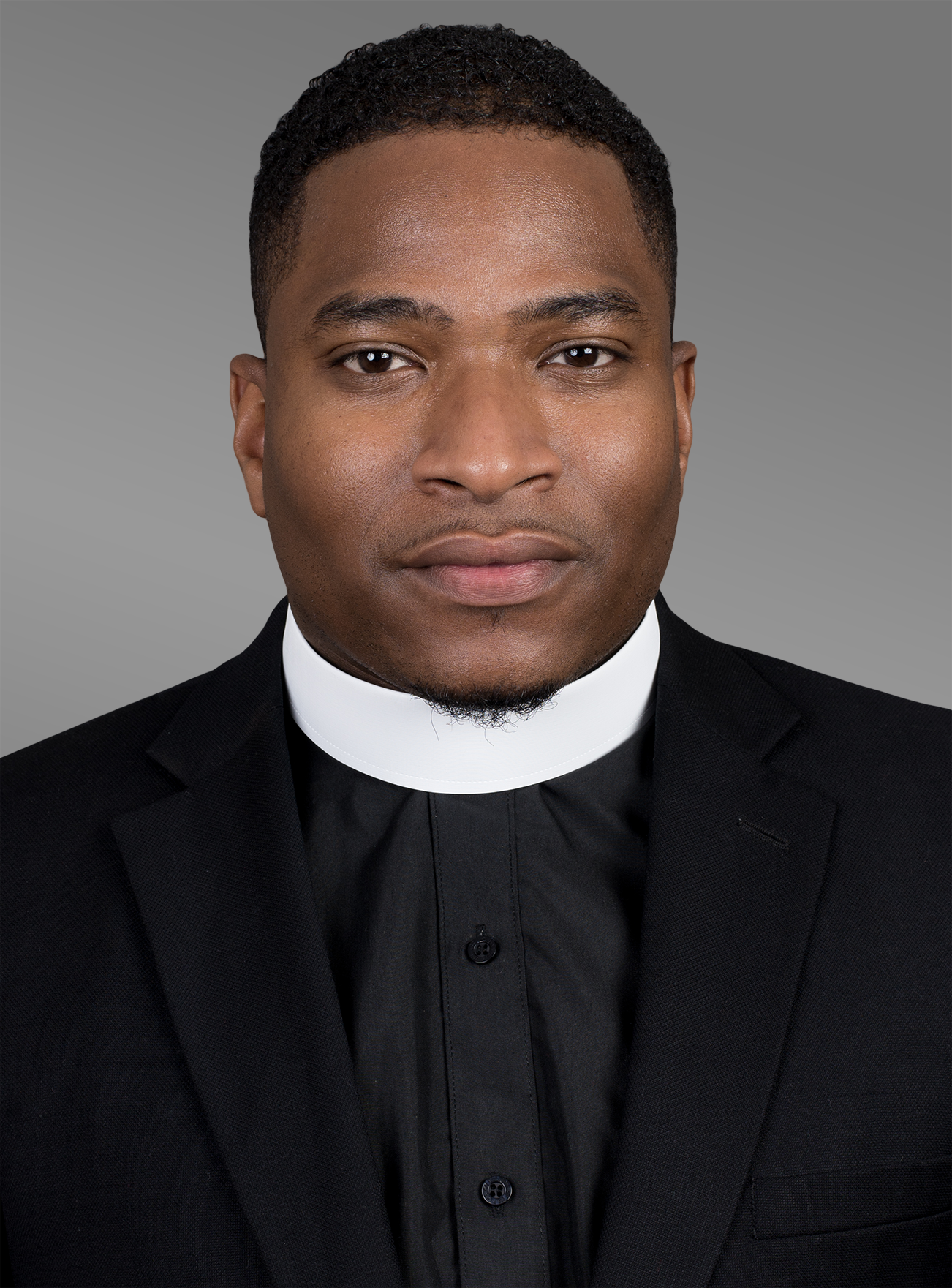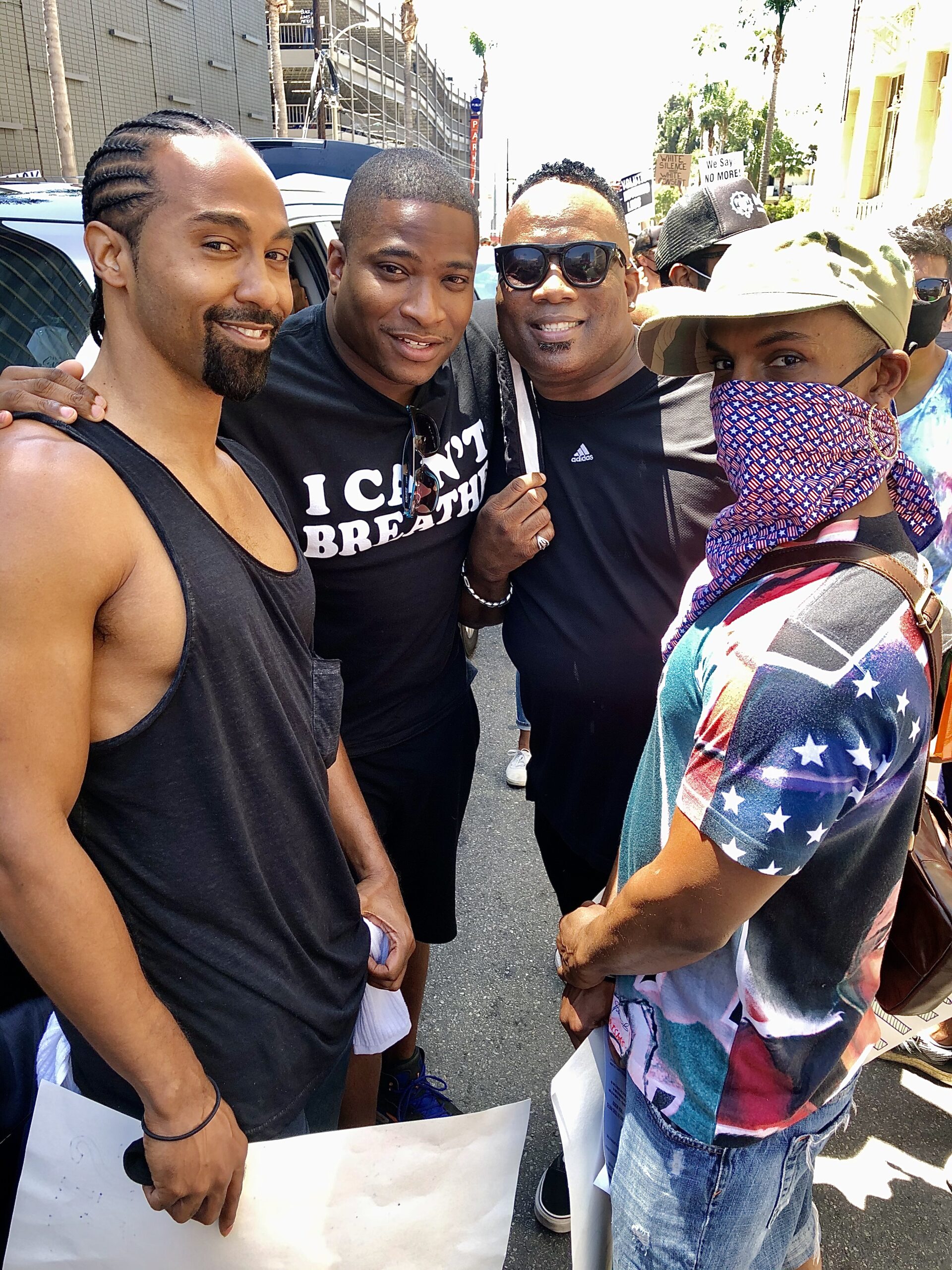
Benjamin Carlton at the “All Black Lives Matter” march in Hollywood
For years, I struggled to fully accept and embrace myself because of society’s prejudices and religious condemnation. I didn’t know where I fit in. I wasn’t man enough in some spaces and wasn’t Black enough in others. There are millions of Black LGBTQ individuals in this plight and face the same struggles in their homes, jobs, places of worship, and within our legal system. While there are tons of freedom fighters hitting the pavement for Black Lives Matter, it’s crucial to ensure the fight includes the Black lives of the LGBTQIA+ community.
I learned to be ashamed of myself at a very young age. I kissed one of my guy friends in kindergarten. It was innocent, as most things are when you are five-years-old. I was doing what all the other kids were doing who were playing “husband and wife.” But when the kids burst out with “ooooohhh,” I knew I’d done something wrong.
I wasn’t quite sure why it was wrong, I just knew all the other kids thought it was wrong. At such a young age, I didn’t fully understand the concept of the identity of being gay. I hadn’t heard of the term, I only knew I wanted a husband too. I was young, scared, broken, and confused, and because of these emotions, my little heart began to shrivel and hide. It would be a long journey of hiding my gay Black love and a quest for self-love, discovery, and, eventually, liberation.
Related Articles:
My Audacity to Love God While Loving You
What Living Out Loud Taught Me About Self Love and Heritage
The Art of Belonging: The Intersection of Race and Sexuality
The stories you tell becomes the life that you live. If this journey of life hasn’t taught me anything else, I’ve learned everyone has a pre-scripted narrative, and most of us live, act, and are because of the stories we’ve been told. Whether through family, friends, church, or the media, people respond to one another based on narratives. I know this to be true because I was one of them. I adopted a preconceived notion that was thoroughly ingrained in me in every area of my life – and that was boys don’t kiss boys.

Ben Carlton (Photo courtesy of Ben Carlton)
Unfortunately, I allowed these judgments and opinions to control my life and let it influence how I treated and judged others. Instead of standing proud and tall, I regrettably, joined the crowd. However, my heart changed as I continued to surround myself with people who viewed gay love in all its beauty, as opposed to something taboo.
In 2015, I came out in a national publication as a Black gay minister. I took the internet by storm and received an influx of messages in my inbox of both great support and opposition. It was a full-circle moment as I read the messages. Some of the same negativity I used to spew I was now receiving. However, I understood these people were only repeating narratives and one-liners they heard. None of which were true — only a perpetuating cycle of prejudices they were groomed to assimilate to.
The progress made today does not eliminate the pending dangers still facing the Black gay community.
Without a doubt 2020 is the year to stand up for all marginalized people and spread messages of love and hope because All Black Lives Matter.

Benjamin Carlton marching with the cast of Noah’s Arch, which is set to return with a special (Photo courtesy of Ben Carlton)
We need allies who serve as accomplices who are willing to raise the standard. “Until all of us are free, none of us are free.” We may be able to legislate against hate crimes, but we can’t legislate against hate. This will only be successful by combating false narratives with positive, affirming, and transformative stories showcasing genuine love, value, and respect of the Black queer community.
America’s social fabric is changing right before our eyes, and the continued need for support in ways that affirm our humanity is vital. The progress made today does not eliminate the pending dangers still facing the Black gay community. So here’s a brief crash course on ways to support the LGBTQ people in your life.
—Educate yourself on the meaning of each letter of the LGBTQIA+ community. I know it’s a lot of newness, but it’s essential.
—Be inclusive. Being LGBTQ in today’s society can still be a bit lonely or isolating. Whether romantic or platonic, include us in your social circles and don’t make us feel that we’re someone you need to hide behind closed doors.
—Speak up and speak out against injustices. To take a step further, create a personal plan of action to help and contribute to the cause.
—Don’t stereotype. Reject the stories that denigrate and amplify the stories that elevate.
—Use appropriate pronouns. Misgendering can be exceedingly hurtful, so please be mindful of preferred pronouns (he/him/his, she/her/hers, they/them/theirs, etc.).
—Create a welcoming environment and allow people to come out in their own time. If you believe a loved one is LGBTQ, please don’t call them out on it. Give them the space and opportunity to do so on their terms.
Increased visibility and positive representation is a start in the right direction, and it took the power of storytellers and accomplices to push the needle forward. Will you join us?


